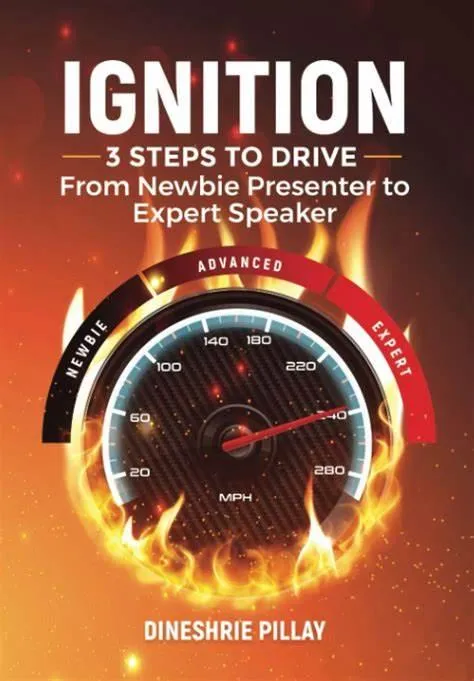The art of starting over: Public speaking lessons relearned

Ignition This book provides a transformative approach to public speaking, guiding readers to master confidence, connection and presence with clarity and purpose.
Image: Supplied
Public speaking can be a daunting task, no matter how many times you’ve done it. It’s a journey that many of us embark on, often filled with both excitement and trepidation.
Even those who have stood before audiences countless times can find themselves needing to return to the basics. In her book, Ignition: 3 Steps to Drive from Newbie Presenter to Expert Speaker, Dineshrie Pillay shares a practical approach to help us find our voice and connect with our audience again.
For me, public speaking has been a pivotal part of my personal and professional development. Long before I discovered Pillay's insights, I spent years honing my delivery and learning the nuances of storytelling. As a Distinguished Toastmaster, I grasped the mechanics of a strong speech, but this book reminded me of something crucial: even seasoned speakers benefit from a reset—a moment to pause, reflect, and remember what truly resonates with an audience.
Reading Pillay’s work felt like returning to the fundamentals but through a sharper lens. It did not introduce something entirely new. Instead, it reframed what I already knew, giving structure to instinct and language to habits I had developed but had not fully understood.
One of the most pervasive myths in public speaking is that confidence is innate—that you either have it or you do not.
Let us be real. Confidence is not a magical personality trait.
I still remember my first Toastmasters speech. My hands trembled. My voice barely filled the room. Every sentence felt like it was on fast forward. I kept waiting for confidence to show up like some kind of superhero.
It did not!
What this book reinforced is something I have learned the hard way. It is that confidence is a muscle. You train it. You build it. You earn it through reps.
The most powerful speakers are not always the most talented; they are the ones who practice deliberately and consistently.
That line stopped me in my tracks. Because it is not about waiting to feel confident—it is about doing the work that builds your confidence.
One of my favorite takeaways was a deceptively simple idea. You have to enjoy your speech before anyone else can.
When I am excited about my message, when I genuinely enjoy the words I am saying, everything changes. My pacing smooths out. My tone finds its rhythm. My presence lands. And the audience? They lean in.
That hit hard. Because I have given speeches where I was too focused on perfection and others where I was just in the moment, fully alive in the message. The difference was night and day.
This guide reminded me that public speaking is not just a performance, it is a shared experience. And if the speaker is not feeling it, the audience will not either.
For me, it was a well timed reminder. No matter how long you have been speaking, it is always worth stepping back to view your voice with fresh eyes.